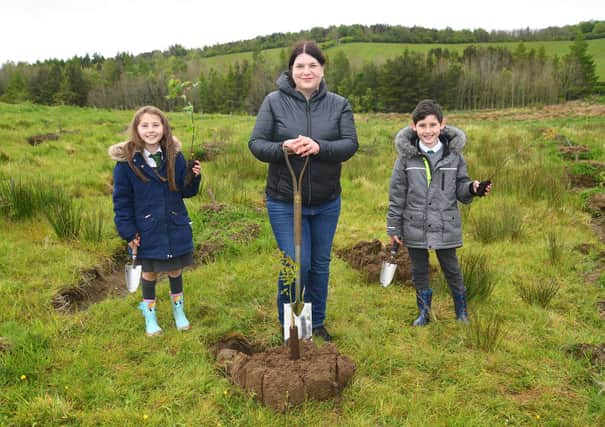Climate change: Scotland's cities are key to fostering green economic revolution and cutting carbon emissions – Polly Billington


You might say, I’ve heard claims like this before. But investing in our natural environment – whether large woodland areas like the proposed Clyde Climate Forest, or street trees in Stirling – can provide an economic boost.
Trees act as natural ‘sponges’ for our polluting behaviour. They absorb carbon emissions, prevent air pollution and reduce flooding.
Advertisement
Hide AdAdvertisement
Hide AdJust as importantly, investing in our natural world, and greening cities can benefit our pandemic-hit high street. Consumers are likely to spend up to 12 per cent more in areas that have mature trees. That would be a boost to every hairdresser, pub and chippy that has suffered.
Carbon-cutting conifers and cedars can help cool our climate and create commercial custom.
This isn’t just a 'tree-huggers' agenda. It’s a hard-nosed economic plan to build back better. Investing in a green economy would support over 250,000 jobs across Scotland I call that a no-brainer.
On the road to the United Nations’ Cop26 climate summit in November, we passed an important milestone earlier this week. A group of 32 city and council leaders – including the leader of Glasgow City Council, Susan Aitken – signed a joint communique akin to the Paris City Hall declaration which paved the way for the Paris Climate Agreement (and is still in force today) in 2015.
They were joined by another 22 cities from across the world – from Lisbon to Los Angeles, from Cape Town to Copenhagen. The summit was co-hosted in Birmingham by UK100 and West Midlands Mayor Andy Street.
Getting a group of politicians representing Labour, Conservatives, the SNP, the Lib Dems and the Greens to agree on anything is rarely easy. But it will be nothing compared to the diplomatic mountain we need to climb before the UN summit in Glasgow.
The local leaders’ message to central government, and indeed all world leaders, was clear: we need local action to be the key plank of the Glasgow Climate Agreement.
Cities like Aberdeen, Dundee, Edinburgh, Glasgow, Inverness, Perth and Stirling are critical to net zero. Across the world, cities generate 70 per cent of global emissions, so leaders, from Whitehall to your town hall, need to work together.
Advertisement
Hide AdAdvertisement
Hide AdBut those leaders, whether they represent rural areas or cities, need new powers and resources enshrined in a Local Net Zero Powers Bill. That includes strategic bodies to tackle energy market failure, and funding to tackle emissions from transport, homes and offices.
UK100 would like to see financing of a programme to retrofit existing homes and proper enforceable standards to build new, affordable net-zero homes, with councils given powers to hold developers to account for emissions.
In Glasgow alone, that could benefit 420,000 homes. At the same time, scrapping VAT on measures like heat pumps and solar panels would boost the ‘retrofit’ industry, a sector that could fund half a million good green jobs.
So let’s work together across the country and the world, from Prime Ministers to parish councillors, and get a deal that really delivers for our communities.
Polly Billington is chief executive of UK100, which represents over 100 local leaders committed to tackling climate change
A message from the Editor:
Thank you for reading this article. We're more reliant on your support than ever as the shift in consumer habits brought about by coronavirus impacts our advertisers.
If you haven't already, please consider supporting our trusted, fact-checked journalism by taking out a digital subscription.
Comments
Want to join the conversation? Please or to comment on this article.
